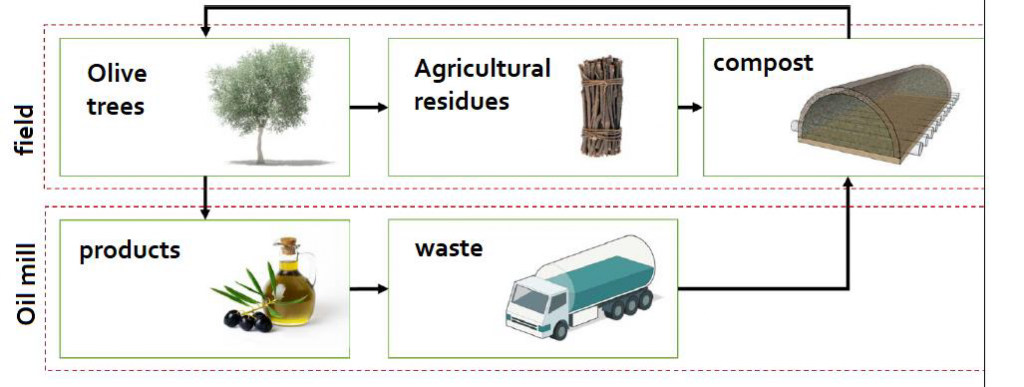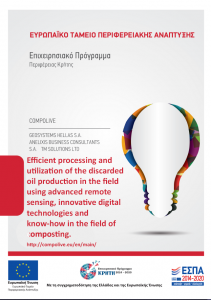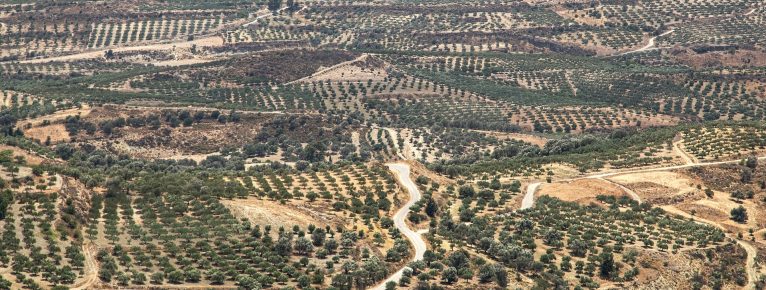The CompOlive project aims at developing an integrated technological product – management system and application that includes software development, logistics infrastructure and services. CompOlive using advanced remote sensing products, innovative digital technologies and know-how in the field of composting, will contribute and allow the efficient treatment and utilization of waste oil production materials in the field (on-farm). The philosophy of the project is simple (Figure 1) and essentially aims at achieving a circular economy in the agri-food sector, with emphasis on olive production, while making composting in the field as a service (composting on-farm as a service) economically viable and viable.

The individual objectives of CompOlive on the agri-food value chain are:
- The safe disposal of those discarded in oil production in order to (a) avoid direct pollution of the environment by uncontrolled disposal on the ground and incineration and at the same time (b) the disposal is done in a controlled manner as a reference to proper implementation and indirect environmental hazards (eg final compost safety control, etc.)
- Strengthening the integrated management by achieving rational use of inputs (mitigation of fertilizer use, control in the production stages)
- Enhancing the sustainability of agricultural production by conserving natural resources, ecosystem services and soil functions (conservation of organic carbon and soil moisture, mitigation of soil erosion, biodiversity, etc.), especially in the light of climate change
- Utilization of the discarded oil production to a product with added value for the grower himself while weighing the management costs of the by-products of the oil production that will be passed on to the grower to which they belong.
- Awareness raising of the stakeholders but mainly of small and medium growers on issues of integrated management, environmental protection, etc.
- Upgrading composting on-farm as a service to an independent, commercially viable and profitable business that will significantly help the development of the rural economy while promoting the circular green economy.


